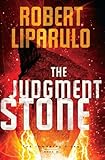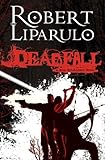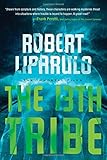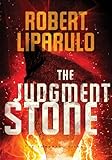|
Robert Liparulo interview with Susan Sleeman
|
|
May 17, 2013
A. I’ve been writing novels for about eight years. Before that, I was a journalist and magazine article writer. I’ve made my living as a writer my entire life, but now that I get to make up people and situations, rather than explain them, I’m happier. Q: Do you write in only one genre and if so which one and why? If not, which ones and why? A: The overarching genre in which I write is thriller or suspense. I’ve always been attracted to the tropes of the genre: action, adventure, witty and tough protagonists, intelligent and twisted antagonists, gunplay. Over the last few years, supernatural and fantasy elements have woven their way into my thrillers. Again, it’s a genre I’ve always appreciated. Since I was young, I’ve been a fan of Stephen King, Dean Koontz, Richard Matheson. I think mixing the two genres was inevitable for me. I love intrigue and pitting good guys against bad guys. And now that otherworldly aspects can play roles in the stories, I’m even more excited about telling them. Q: How does your faith play into your writing? A. It’s not easy to explain because there are so many misconceptions about writers of faith who tell stories in which faith is explored or motivate the characters. Being a man of faith myself, I know it’s a complicated thing. It permeates my life, all my decisions and who I am, but except for the obvious things I do like pray, read the Bible and attend church, most people would be hard-pressed to identify specific ways in which my faith differentiates me from others. That’s not to say I don’t live my faith, but the opposite: my faith is so much a part of what I do, it’s not a splash of color but a constant, universal hue. That hue infuses my stories as well: There are lots of action scenes, fight scenes, nasty people doing nasty things, but if you take a step back, you see the big picture, a story of redemption and goodness constantly struggling to overcome evil. Q: How do you choose your settings for your books? A. I like exotic locales. In a way, settings mirror my characters; they’re complicated and interesting to experience. In The Judgment Stone, Jagger lives in the Sinai desert. That suits the story because of the Biblical themes in the book—God’s relationship to man through Moses, the Ten Commandments—and the importance archaeology plays; but also, Jagger is like a desert: he has experienced trauma and pain that’s left him spiritually barren, emotionally arid. There’s a lot of mystery and darkness in the story, so settings include places like the forests of Romania and Bulgaria. Q: Do you base your characters on people you know or are they totally made up? A: A bit of both. Sometimes characters are very much like people I know. But most often, they’re stitched together from bits of people I know, characters from movies and books, my imagination, and me.
A: We revisit Jagger Baird (from The 13th Tribe) at St. Catherine’s monastery at the base of Mt. Sinai just as it’s attacked by a group of Immortals who call themselves the Clan. They steal a relic that lets them see into the spiritual realm—angel, demons, and even prayers. They use it track down people who are most connected to God so they can kill them. Their motivation is that they hate God and strive to grieve Him. Jagger and his friend Owen have to go after them and get the relic back, but these are some seriously bad dudes, so it’s not an easy task. Jagger has to deal with all sorts of his own struggles with who he thinks God should be as to who God is. Q: Where did you get your inspiration for The Judgment Stone? A: I wanted to explore the very human propensity of believing what we can see and discounting or outright rejecting what we can’t. I liked the idea of taking characters who are struggling with faith, maybe rejecting it altogether, and giving them absolute proof of God. What do they do? Does it mean they embrace it, or could they still turn away? I think they can, and I wanted to test that through the characters I’d already established in The 13th Tribe. I wanted to slam them with facts contrary to their own long-held convictions and see how they reacted. Q: What is the main thing you hope readers remember from this story? A: First, I want them to be entertained—to be thrilled. Next, I hope the story challenges them into rethinking their ideas of God and faith and belief. Whether a reader is a believer or not, I want to shake them up, get them questioning why they believe or why they don’t. And as I do with all my stories, I want readers to understand the power of hope. This world deals out some heavy blows, but until you’re six feet under, you have the power to set things right, to make things better. Where does that hope come from? How deep into your soul do you have to dig to find it when faced with seemingly insurmountable odds? Hope is like pixie dust: it can make you fly and give you strength. It’s my wish that readers close the book with more belief in the strength of their own hope than when they began. Q: Tell us what you like about the main characters of this book. A: Jagger is a tough guy with a big heart. He lost an arm in an accident, which hit him especially hard since he was such a physical person, a former Army Ranger and executive body guard. His family is everything to him. He’s a born protector. He can’t stand it when mean people hurt others and when justice isn’t served. He’s a bulldog who fights for what’s right with an almost scary determinism. His wife Beth is a gentle soul who has a way of softening Jagger’s rough edges. She gets him, but she doesn’t necessarily go along everything he does; she’s his voice of reason. Owen is a complex character, a physician and man of God who’s not above giving a smack-down to bad people. He’s wise and tough and the kind of guy you want on your side Q: Would you share with us what you are working on now? A. I’m finishing the last book in the Immortal Files series, the sequel to The Judgment Stone. I’m having a blast: Jagger and the Immortals face a billionaire who discovers their secret and is determined to harvest their body parts to distill a transferable, implantable “immortal gene” out of them. As bad as the series’ bad guys have been, this guy trumps them all. Q: If money were no object what vacation would you like to take and why? A. I’d take my family to Terceira in the Azores Islands. I spent three years there when I was young, and it was like a dream world: thick forests, rolling hills, cliffs plunging two hundred feet into the Atlantic. The streets are cobblestone, the buildings hosted Columbus on his voyage to discover America. Rock walls and flowers line the roads. It’s a beautiful, magical place. I know I’ll be disappointed by seeing it with adult eyes and how it’s changed over the years, but I’d love to show my kids what I’ve always considered the most fabulous place in the world. Q: What is the silliest thing you have ever done? A. Oh, wow, that’s like asking what was my favorite meal; there are just so many! I think it’d be my joining a “Running of the Bulls” in the Azores. They closed off a bunch of side streets and released about a dozen bulls to run through this ancient town. The bulls were angry over something and pounding through these narrow streets, trying to gore and toss as many people as possible. On a whim, I hopped off the wall on which I was sitting and started running with everyone else. Next thing I know, a bull tosses me over its head and I tumble along its back and down onto the street. A man ran out from behind a wall and dragged me to safety before the next bulls could run me over. If that’s not the silliest thing, then it’s certainly the stupidest. Q: What is the hardest thing you have ever done? A. Helping my mother after my sister died in a car crash. It was so sudden and so tragic. It’s really hard to find comforting words in times like that. Grief is like a whirlpool, sucking down everyone who gets near it; but someone has to keep hold of the rope and reach out to those who are most in danger of getting pulled in. I was that person for my mother. It was so difficult, especially when my own grief was threatening to crush me; I think it was her greater grief, her greater need that kept me from giving in to my own. Those feelings of utter despair and desperation to help another person pop up in my stories from time to time. I’ve received letters from readers who’ve mentioned how moved they were and I think it’s because those scenes, those feeling come straight from my own experience, right from my own heart. But of course I wish I had to only imagine such grief and desperation. Q: Where can readers find you on the internet? A. RobertLiparulo.com or DreamhouseKings.com (that’s the title of my YA adventure series) and of course on Facebook: Facebook.com/liparulofans Q: Anything else you’d like to tell or share with us? A. Just that I’d love to hear from readers. If they have questions or comments, drop me a message through my website. I read them all and reply. Thank you!
|
Warning: getimagesize(https://www.thesuspensezone.com/wp-content/uploads/2014/08/susanamazon-200×300.png): failed to open stream: HTTP request failed! HTTP/1.1 406 Not Acceptable
in /home/susans16/thesuspensezone.com/xxss_class/Utils.class.php on line 849
Warning: Division by zero in /home/susans16/thesuspensezone.com/xxss_class/Utils.class.php on line 856

 Former journalist Robert Liparulo is the best-selling author of the thrillers Comes a Horseman, Germ, Deadfall, Deadlock, and The 13th Tribe, as well as The Dreamhouse Kings, an action-adventure series for young adults. He contributed a short story to James Patterson’s Thriller, and an essay about Thomas Perry’s The Butcher’s Boy to Thrillers: 100 Must Reads, edited by David Morrell and Hank Wagner. He is currently working on the sequel to The 13th Tribe, as well writing an original screenplay with director Andrew Davis (The Fugitive).
Former journalist Robert Liparulo is the best-selling author of the thrillers Comes a Horseman, Germ, Deadfall, Deadlock, and The 13th Tribe, as well as The Dreamhouse Kings, an action-adventure series for young adults. He contributed a short story to James Patterson’s Thriller, and an essay about Thomas Perry’s The Butcher’s Boy to Thrillers: 100 Must Reads, edited by David Morrell and Hank Wagner. He is currently working on the sequel to The 13th Tribe, as well writing an original screenplay with director Andrew Davis (The Fugitive).
When not writing, Liparulo loves to read, watch (and analyze) movies, scuba dive, swim, hike, and travel. He lives in Colorado with his wife Jodi and four children: Melanie, Matthew, Anthony, and Isabella.













 Q: How long have you been writing and what other careers or jobs have you had?
Q: How long have you been writing and what other careers or jobs have you had?  Q: Would you tell us about your current book release The Judgment Stone?
Q: Would you tell us about your current book release The Judgment Stone? 
Leave a Reply